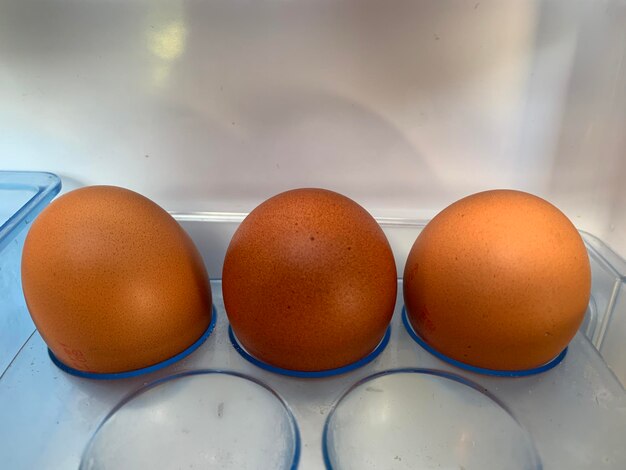How Long Can Boiled Eggs Stay Fresh in the Refrigerator?
Boiled eggs are a staple in many households, offering a quick, nutritious snack or an essential ingredient for numerous dishes. But once they’ve been cooked, how long do they last in the refrigerator? This article delves into the shelf life and storage of boiled eggs, offering insights and practical tips to keep them fresh for as long as possible.
Understanding the Shelf Life of Boiled Eggs
How Long Do Boiled Eggs Last in the Fridge?
When stored properly, boiled eggs can last up to a week in the refrigerator. The cool temperature slows the growth of bacteria, ensuring the eggs remain safe to eat during this period. However, the exact duration can vary depending on several factors, including storage practices and the condition of the eggs before boiling.
Factors Influencing the Freshness of Boiled Eggs
Egg Quality Before Boiling
Fresh eggs typically last longer post-boiling compared to older ones. If you're unsure about the freshness of your eggs, perform the water test before boiling: place an egg in a bowl of water. Fresh eggs will sink, while older ones might float, indicating they’re best used promptly.
Storage Practices
Proper storage is crucial for maintaining the freshness of boiled eggs. Here are some essential tips:
- Refrigerate Promptly: Boiled eggs should be refrigerated within two hours of cooking. The sooner they’re chilled, the longer they’ll remain fresh.
- Keep Shells On: If possible, store boiled eggs with their shells. The shell acts as a natural barrier, protecting the egg from bacteria and drying out.
- Use a Sealed Container: Store boiled eggs in a clean, airtight container to reduce odor absorption and prevent drying.
Temperature and Environment
The refrigeration temperature should be consistently cold – generally below 40°F (4°C). Avoid storing eggs in the refrigerator door, where temperatures fluctuate with frequent opening and closing.
Tips for Storing Boiled Eggs
Ensuring boiled eggs remain fresh requires some attention to storage practices. Here are practical tips:
- Label and Date: It’s helpful to label the container with the date the eggs were boiled. This practice aids in monitoring their fridge life and ensures they are consumed while still fresh.
- Avoid Moisture: Excess moisture in the container can lead to spoilage. Use a paper towel to absorb extra moisture if necessary.
- Store Them Separately: If shells are removed, it’s best to store the eggs separately from other foods to prevent flavor absorption.
How to Tell if Boiled Eggs Are Still Good
Once boiled eggs are stored, it’s essential to check for signs of spoilage before eating:
Visual Inspection
- Shell Condition: Even if kept in their shell, cracks can allow bacteria to enter, increasing spoilage risk. Discard any eggs with broken shells.
- Egg White and Yolk: Upon peeling, check the egg white and yolk. A good egg will have a firm white and a yolk that's well-centered. Avoid consuming eggs if the yolk turns grey or green, or if the white is watery or cloudy.
Smell Test
Spoiled eggs emit a distinct sulfurous odor. If you notice any unusual or strong odors after peeling an egg, it’s best to discard it.
Taste and Texture
While less ideal, texture changes can alert you to spoilage. Rubbery whites or an off taste are signs the egg is past its prime.
The Nutritional Value of Boiled Eggs
Boiled eggs are nutrient-dense and provide a host of benefits. They are an excellent source of:
- Proteins: Essential for muscle repair and growth.
- Vitamins: Such as B2 (riboflavin), B12, and D, supporting energy production and bone health.
- Minerals: Including selenium and phosphorus, crucial for metabolic functions.
Their compact nature and rich nutrient content make boiled eggs a popular choice for quick snacks, breakfast, or an addition to meals.
Creative Uses for Boiled Eggs
Beyond being a standalone snack, boiled eggs can be used creatively in various dishes:
Egg Salad
Combine chopped boiled eggs with mayonnaise, mustard, and a hint of lemon juice for a classic sandwich filling.
Deviled Eggs
A party favorite, deviled eggs are made by mixing yolks with mayonnaise, mustard, and spices, then piping them back into egg white halves.
Salads and Bowls
Chop boiled eggs to top salads or protein bowls for extra nutrition and texture.
Practical Tips for Meal Prep
For those who enjoy meal-prepping, boiled eggs can be a convenient component:
- Batch Boiling: Boil a batch of eggs at the beginning of the week for quick access throughout.
- Cooking with Consistency: Consistent cooking times ensure each batch has the desired yolk texture, whether soft or hard-boiled.
Boiling Time Guide 🥚
- Soft Boiled: 4-6 minutes
- Medium Boiled: 7-9 minutes
- Hard Boiled: 10-12 minutes
Adjust times based on personal preference and size of the eggs. Properly timed boiling enhances both the texture and taste of the eggs.
Quick Reference: Sanitizing Storage Practices
Here's a handy checklist to ensure boiled eggs are stored correctly:
- ✅ Cool Quickly: Place eggs in a bowl of ice water immediately after boiling to cool rapidly.
- ✅ Store Shell-On: Keeps the eggs protected.
- ✅ Use Airtight Containers: Prevents odor absorption.
- ✅ Label: Always date the storage container.
- ✅ Inspect Regularly: Look out for signs of spoilage.
By following these tips, you’ll enjoy fresh-tasting boiled eggs throughout the week. 🥚✨
Concluding Insights
Boiled eggs, when stored correctly, can be a delightful and nutritious part of your diet. By understanding the influences on their shelf life and adopting proper storage techniques, you can ensure they remain fresh and safe to eat. Whether you enjoy them as a snack, in salads, or as a part of meal prep, adhering to these guidelines will maximize their freshness and utility in your culinary adventures.

